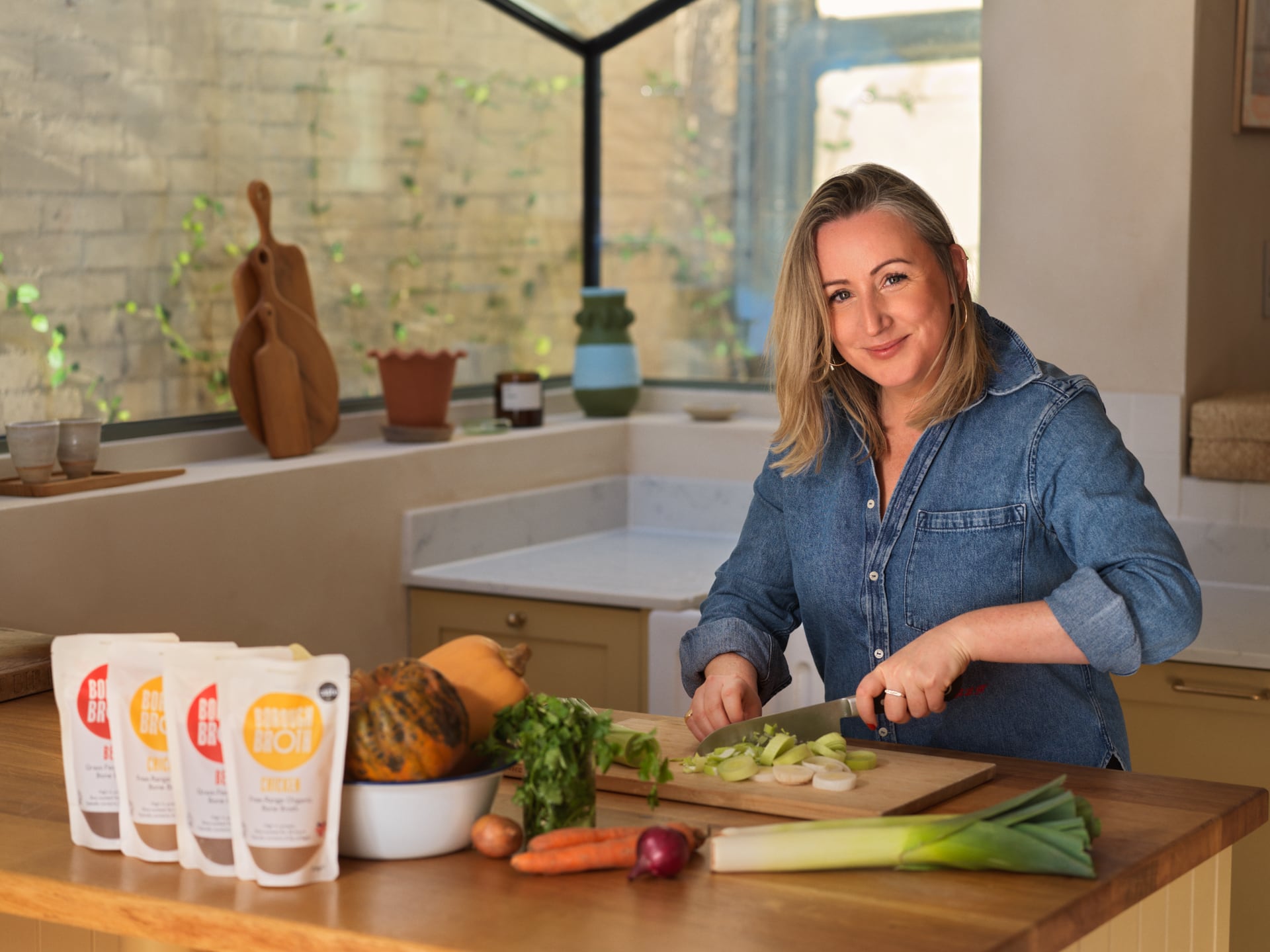We teach children how to read, write, and count but not how to nourish themselves. Cooking is a valuable life skill, yes, but understanding the science behind food is what truly empowers people to make informed, healthy choices.
If we want to reverse the tide of obesity, misinformation, and chronic disease, we must start with education, not regulation.
The consequences of poor nutrition are staggering. According to Public Health England, more than 60% of UK adults are overweight or obese and diet-related diseases account for over 40% of NHS spending. Childhood obesity has tripled in the last 30 years, and poor diet is now a leading cause of preventable death. We talk about knife crime, vaping, and screen time, but not about the food children eat every day. That silence is costing lives.
Despite these stats and a growing public concern about health and nutrition, food education in UK schools remains patchy and inconsistent. While some schools offer cooking clubs or basic lessons, the national curriculum states about using and understanding “the basic principles of a healthy and varied diet” but these are the only reference to nutrition science for 5-11-year-olds. The focus on manufacturing is also minimal, at Key Stage 2 (7-11 years) it covers understanding seasonality, and knowing where and how ingredients are grown, reared, caught and ‘processed’.
It’s not just about learning to cook and seasonality - of course these are basics everyone should be equipped with - it’s also about understanding what protein does in the body, why fibre matters, how sugar affects your metabolism, and what ‘balanced eating’, as well as what healthy eating, looks like.
Add to that the next layer of understanding: what’s in the food you eat, how it’s made, and why ingredients are used or added in everyday products - whether it’s to help preserve a product, for stability or simply to enhance a flavour.
Back-of-pack ingredients are becoming more talked about, but how are adults and children alike expected to understand these and make informed choices if they don’t understand all these principles?
Almost 20% of children are already obese by the time they leave primary school at eleven. Diet-related illnesses are putting a huge strain on the nation’s coffers – costing the NHS £10 billion every year.
Are we setting up children to fail from the start?
This leaves children vulnerable to a tidal wave of misinformation, especially as they begin to encounter everything from misleading marketing to the views of social media influencers, including big authority voices like Joe Wicks.
Despite all the work Joe does to educate children on the importance of being active and eating healthy, he’s still posting videos demonising sugar and more recently protein bars, without telling the whole story.
Consequently, he’s received backlash from industry and nutritionists about the danger of this kind of scaremongering, and impact this can have on children’s mental health, including leading to eating disorders.
If we want to reverse the tide of obesity, misinformation, and chronic disease, we must start with accurate, factually-led education, not regulation.
Navigating without a compass
I believe education starts both in the home and at school, but how do we expect parents to educate if the majority of adults haven’t had the education themselves, so therefore don’t have the right answers?
Government interventions like sugar taxes and advertising bans have their place, but they’re not enough. We need to equip the next generation with knowledge, not just restrict their choices. Education fosters autonomy. It allows children and later adults to make informed decisions with their food choices.
Countries like Japan and Finland have long embedded food education into their national curriculum, and the results speak for themselves. In Finland, every child receives a free truly nutritious school meal daily, and food education is woven into subjects like biology, home economics, and environmental studies.
Finland’s success story
An International Study of Childhood Obesity, Lifestyle and the Environment (ISCOLE) study found that Finnish kids aged 9–11 had the lowest unhealthy eating pattern scores compared to any other country globally.
This wasn’t achieved through bans or restrictions, but through education, consistency, and collaboration across sectors. Finland’s model proves that when children are taught about nutrition and given access to balanced meals, their choices and health outcomes improve dramatically.
The food producer’s role
As food manufacturers, we sit in the middle of public health and consumer demand. We have a responsibility to support healthier choices but we’re also a business. Profitability matters. We can’t pretend that our job is solely to educate or reformulate; we exist to sell products. That’s the reality.
And with each new government legislation, food developers and ingredient suppliers are finding new ways to work around them, sometimes with a more positive outcome, in other ways I worry is it worsening the problem and making it even more complex.
While profitability is key, that doesn’t absolve us of responsibility. We can still contribute to the solution by prioritising transparency, investing in innovation, and collaborating with educators and health professionals. Reformulating products, improving labelling, and supporting food education initiatives are all meaningful steps forward. However, for these efforts to be sustainable, there must be genuine consumer demand that supports healthier products.
Take, for example, Europe’s updated Nutri-Score system. In 2025, it was refined to better reflect nutritional quality by penalising foods high in sugar, salt, and saturated fat, while rewarding those richer in fibre and protein. This shift has motivated brands to reconsider their recipes and product development. Although the system is not perfect, it represents a move in the right direction.
Final thoughts
Ultimately, this is a conversation the government must lead, providing both incentives and clear guidance. The answer is not to vilify ultra-processed foods (UPFs) or ban entire categories. As we have seen, all this does is spread confusion.
People will always seek convenience, indulgence, and variety in their diets. The real solution lies in giving people the knowledge and education that allows them to foster balanced diets and make accurately informed decisions around the food they make, buy and eat.
If we’re not equipping the next generation with the tools to understand more about where their food comes from and how it is made, how can we expect to see more people making healthy choices and having a balanced diet?
Five minutes with Ricky Flax
Tell us about yourself
I never really planned to join my dad’s business but now over 10 years later, it was one of the best decisions I made. I’d started my own theatre business, worked in recruitment, and then offered to help with the branding and marketing while I set up my own business - but I never left!
I’m now CEO of Delightful Food Group (DFG) and IBC Simply, something I’m very proud of. Since I joined the family business, we’ve delivered more than 800% growth within five years through our customer-centric strategy and best in class products and service.
I led the acquisition of March Foods, the UK’s best kept manufacturing secret, packing millions of units for some of the biggest blue chip household brands, allowing us to focus both businesses on accelerated, continuous growth through Delightful Food Group,
Tell us about your business
Delightful Food Group brings our two businesses together, IBC Simply and March Foods. Both companies have over 30 years of heritage in food and drink manufacturing.
Having sold his fresh food manufacturing business, my dad started IBC Simply in the early 90s importing flavoured syrups at the time. Together we have scaled to manufacture and sell over 300 products across foodservice, mainly in the beverage and dessert space. We also co-pack and co-manufacture a wide range of liquid and powder products for some of the biggest household names.
How long you have been a member of BLF?
Two years
What’s your expert topic?
I’m not sure it’s a topic but creating and maintaining a customer-centric business. It’s all very well having a product or service people want to buy or invest in, but how do we ensure we’re answering all their needs at every touch point, continuously building those relationships and retaining those customers? We have excellent retention of colleagues and customers and I’m proud to have fostered that culture amongst my teams.
What’s something you’d like to learn more about?
I love seeing how other people are implementing AI into their businesses and am always keen to learn more about what’s working and how it’s benefitting their operations as well as what lessons have been learnt.
What’s one thing you love about the industry and one thing you wish you could change?
I love the energy, passion and people in the food industry – it’s infectious. The constant NPD, new brands and trends we see on the market means it’s always exciting and there is always something new to dive into.
That said, amongst all the fun and innovation there are constantly new challenges. I think one of the most talked about topics at the moment is UPFs, but there are no clear guidelines from the government on what classes as an ultra processed food, which leads to more misinformation and confusion for the consumer.




